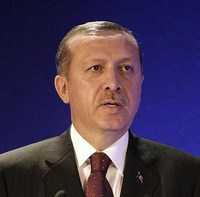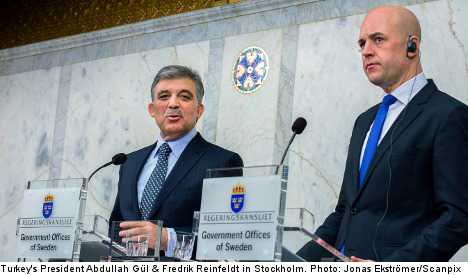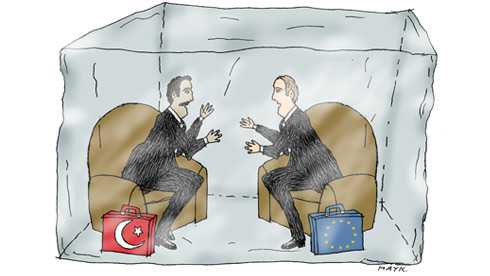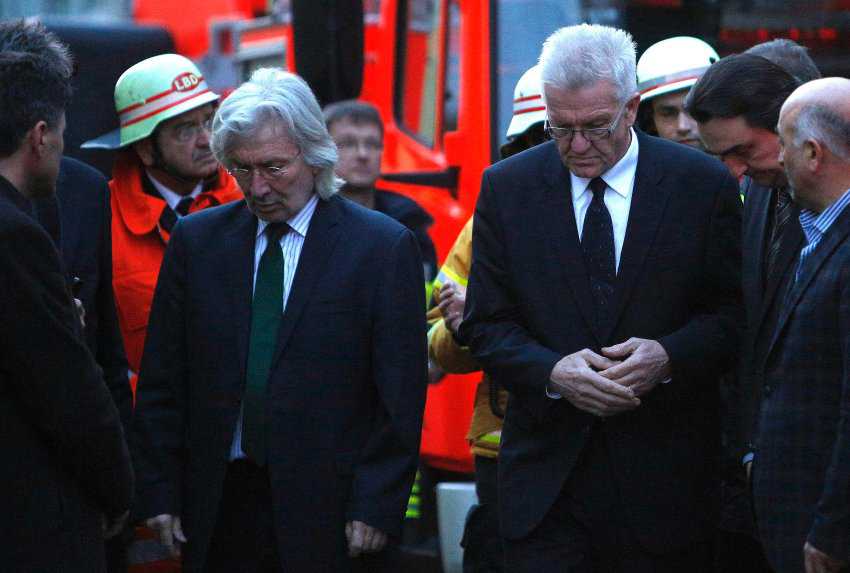By The Editors, on 12 Mar 2013, Global Insider
 In February, German Chancellor Angela Merkel visited Turkey, indicating a willingness to help Turkey revive stalled negotiations over its longstanding bid for European Union membership. In an email interview, Rana Deep Islam, a project manager with Stiftung Mercator whose research focuses on Turkey-EU relations, explained the state of Turkey’s EU accession bid and how it could move forward.
In February, German Chancellor Angela Merkel visited Turkey, indicating a willingness to help Turkey revive stalled negotiations over its longstanding bid for European Union membership. In an email interview, Rana Deep Islam, a project manager with Stiftung Mercator whose research focuses on Turkey-EU relations, explained the state of Turkey’s EU accession bid and how it could move forward.
WPR: What is behind Germany’s recent statement that it will support reviving Turkey’s EU accession process?
Rana Deep Islam: The German government under Merkel still does not have a clear-cut policy on how it wants to handle Turkey’s membership aspirations. On one hand, Merkel has said repeatedly that she prefers a so-called privileged partnership over full-fledged EU membership for Turkey. On the other hand, Germany still treads the path of negotiations and has not blocked the process as, for example, France did in the past. The German government’s announcement of support for the opening of a new chapter in negotiations reflects this seeming paradox, or German bipolarity, in the Turkey-EU context. Reviving the accession talks by extending negotiations to new domains might push the process forward in the short term. But it’s still unclear what Merkel envisions more broadly for the crucial relationship between Turkey and the EU. Nor is it clear how Merkel views the accession negotiations beyond their narrow technical aspects, which deal primarily with Turkey’s administrative and bureaucratic capacity to adopt the EU’s “acquis communautaire” — the French term the EU uses to describe the shared rights and obligations within the union.
WPR: How significant is French President Francois Hollande’s statement that he was willing to unblock accession talks with Turkey, and what are the reasons for this political shift?
Islam: Former French President Nicolas Sarkozy blocked the accession talks on chapters that he believed would make Turkey’s accession inevitable. Hollande’s willingness to give up this policy definitively is a step in the right direction and creates space for diplomatic maneuvering. However, it does not turn France into a proactive advocate for Turkey’s membership. Turkey’s prospects for joining the EU will only improve significantly if Turkey succeeds in finally regaining an intra-European alliance of supporters, as France and Germany formerly were under President Jacques Chirac and Chancellor Gerhard Schröder.
Against this backdrop, Hollande’s intentions should be considered primarily strategic. First, he wanted to send a sign of good will to the Turkish government. In doing this he also passed the ball, if not the responsibility, to Ankara. Now it is up to Turkey to take up this initiative and respond appropriately. Second, Hollande’s shift needs to be seen in the context of a complex foreign policy agenda. With regard to the Middle East and North Africa, the EU cannot afford to act without Turkey on its side. France realized that reinvigorating the accession talks could be a useful tool to increase the EU’s capacity to act externally.
WPR: What are Turkey’s current EU aspirations and how likely are they to be realized in the near to medium term?
Islam: Turkish Prime Minister Recep Tayyip Erdogan recently declared that his country wants to join the EU as a fully integrated member by the year 2023. If this does not occur, Ankara will adjust its policy accordingly and finally give up its EU ambitions entirely. But this seemingly clear articulation of Turkey’s position notwithstanding, the Erdogan government falters when it comes to adopting the norms and values of the EU, which is a precondition for accession. The domestic reform process that Erdogan pushed during the first years of his administration has slowed down significantly. Civil rights are at stake, with many journalists in jail. Apart from the “yes or no” dichotomy of the membership discourse, it is currently not clear if Erdogan still supports the Europeanization of Turkish politics and society. Joining the union, though, is not a matter of cherry-picking but of rights and duties. Therefore, refreshing the EU-Turkey membership talks also implies an imperative for a further liberalization of Turkish domestic politics. Erdogan still needs to show his willingness to seriously deliver on this front.
Photo: Turkish Prime Minister Recep Tayyip Erdogan (European Commission photo).
via WPR Article | Global Insider: Germany, France Nudge Open EU Door to Turkey.





